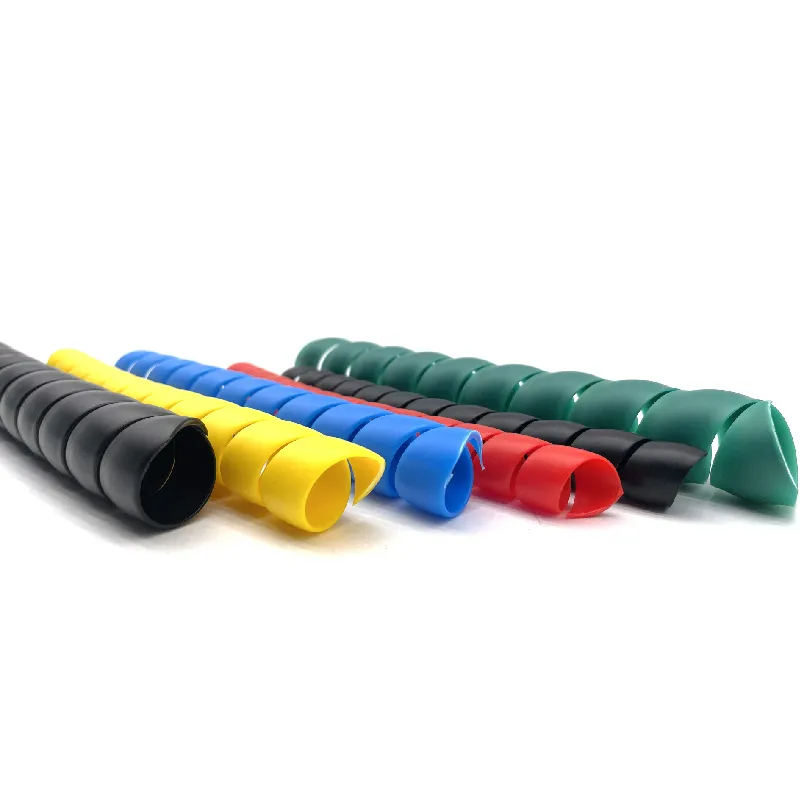Protecting Hydraulic Hoses with Advanced Solutions
Industrial and agricultural operations rely heavily on hydraulic systems and hoses to transmit power and fluids efficiently. However, these components are often exposed to harsh conditions, including abrasion, extreme temperatures, and chemical exposure. Protecting these vital parts requires specialized solutions like hose guard, hyd hose protector, and spiral hose guard systems. These innovations not only extend the lifespan of hoses but also ensure operational safety and reduce maintenance costs. This article explores the importance, applications, and benefits of these protective solutions, providing insights into how they safeguard critical infrastructure.

Understanding the Role of Hose Guard and Hyd Hose Protector
A hose guard is a protective sleeve designed to shield hydraulic hoses from physical damage caused by friction, impact, or environmental stressors. Similarly, a hyd hose protector serves as a reinforced barrier, often tailored for high-pressure hydraulic systems. These solutions are engineered from durable materials like polyurethane, stainless steel, or abrasion-resistant polymers, ensuring they withstand demanding conditions.
The primary distinction between a hose guard and a hyd hose protector lies in their application specificity. While hose guards are versatile and used across industries, hyd hose protectors are optimized for hydraulic systems where pressure fluctuations and fluid compatibility are critical. Both solutions prevent leaks, ruptures, and costly downtime by mitigating wear and tear.
Applications of Spiral Hose Guard in Industrial Settings
The spiral hose guard is a unique variant characterized by its helical design, which combines flexibility with robust protection. This structure allows hoses to bend without compromising integrity, making it ideal for applications requiring frequent movement, such as robotics, construction machinery, and agricultural equipment.
In manufacturing plants, spiral hose guards are often deployed in assembly lines where hoses interact with moving parts. Their ability to resist twisting and kinking ensures consistent fluid flow, even in dynamic environments. Additionally, the spiral design simplifies installation and maintenance, reducing labor costs and operational interruptions.
Key Benefits of Using Hose Guard Solutions
Investing in hose guard systems offers multifaceted advantages. First, they significantly reduce the risk of hose failure, which can lead to hazardous leaks or machinery malfunctions. By acting as a sacrificial layer, the hose guard absorbs damage that would otherwise compromise the hose itself.
Second, these solutions enhance safety. A ruptured hydraulic hose can release high-pressure fluids, posing injury risks. Hyd hose protectors contain such failures, minimizing workplace accidents. Lastly, the longevity provided by spiral hose guards translates to lower replacement costs and sustainable resource utilization.
Maintaining Hyd Hose Protector Systems for Longevity
While hyd hose protector systems are built for durability, regular maintenance ensures optimal performance. Inspections should focus on identifying cracks, abrasions, or material degradation. Cleaning the protectors to remove debris or corrosive substances also prolongs their lifespan.
For spiral hose guards, checking the structural integrity of the helical coils is essential. Misaligned or damaged spirals can expose the hose to unnecessary stress. Proactive replacements of worn protectors prevent unexpected failures, ensuring continuous operation.
The integration of hose guard, hyd hose protector, and spiral hose guard systems is indispensable for industries reliant on hydraulic and fluid transfer systems. These solutions not only safeguard equipment but also enhance operational efficiency and workplace safety. By understanding their applications and committing to routine maintenance, businesses can achieve long-term cost savings and reliability. As technology evolves, these protective innovations will continue to play a pivotal role in industrial advancement.
Hose Guard FAQs
What is the primary purpose of a hose guard?
A hose guard acts as a protective sleeve to prevent physical damage to hoses from abrasion, impact, or environmental factors. It extends hose lifespan by absorbing external stressors.
How does a hyd hose protector differ from standard guards?
A hyd hose protector is specifically engineered for hydraulic systems, addressing high-pressure demands and fluid compatibility, whereas standard guards may lack such specialized reinforcement.
Why choose a spiral hose guard over other designs?
The spiral hose guard offers unmatched flexibility and resistance to kinking, making it ideal for applications requiring frequent hose movement or bending.
Can hyd hose protectors be reused after damage?
While minor wear may be acceptable, severely damaged hyd hose protectors should be replaced to ensure continued protection and safety.
Are spiral hose guards suitable for extreme temperatures?
Yes, many spiral hose guards are manufactured from materials resistant to extreme temperatures, though compatibility should always be verified with the supplier.
The article emphasizes the critical role of hose guard, hyd hose protector, and spiral hose guard systems in safeguarding hydraulic and industrial hoses from damage caused by abrasion, pressure, and environmental stressors. Hose guards serve as versatile protective sleeves, while hyd hose protectors are specialized for high-pressure hydraulic systems, ensuring fluid compatibility and durability. The spiral hose guard, with its helical design, provides flexibility and resistance to kinking, making it ideal for dynamic applications like robotics and heavy machinery.
These solutions enhance operational safety by preventing leaks and ruptures, reduce maintenance costs, and extend hose lifespan. Regular inspections and maintenance of hyd hose protector and spiral hose guard systems are crucial for sustaining performance. By integrating these innovations, industries achieve reliability, cost efficiency, and improved workplace safety, underscoring their indispensable role in modern industrial and agricultural operations.
-
Quick Release Ball Joint – Tool-Free, Durable, Leak-TightNyheterNov.13,2025
-
Spiral Guard Hose Protection — Durable, UV-Resistant WrapNyheterNov.13,2025
-
SAE J1401 Brake Hose Specifications: Durable, Low ExpansionNyheterNov.13,2025
-
SAE J1401 Brake Hose Specifications | DOT-Approved, DurableNyheterNov.13,2025
-
Spiral Guard Hose Protection - Abrasion-Resistant, UV-StableNyheterNov.10,2025
-
SAE J1401 Brake Hose Specifications | DOT-Certified, DurableNyheterNov.10,2025

